ESI 10th Anniversary conference
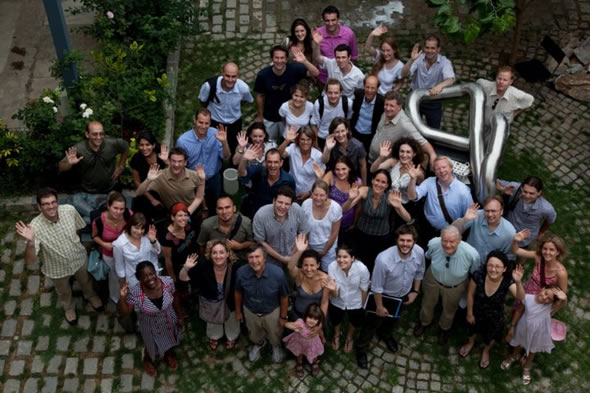
Rumeli Observer blog: Where new ideas are born – ESI Anniversary Conference Story
ECFR: ECFR wishes ESI a Happy 10th Birthday!
On 12 July 2009, ESI celebrated its 10th anniversary in Istanbul with a seminar on the state of democracy in the wider Europe - and on the role of think tanks in this new environment.
At the outset we looked at four maps: the EU in 1999 (when we first set up ESI in a cafe in Sarajevo); the EU in 2009; an enlarged EU in 2019 (having fulfilled its promises to current EU candidates/potential candidates); and the new European neighbourhood, between an enlarged EU and Russia.
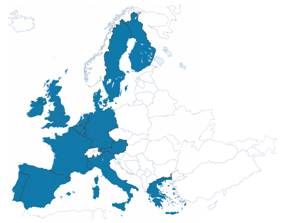 |
 |
|
the EU in 1999 |
the EU in 2009 |
 |
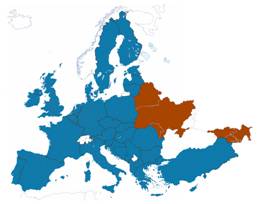 |
|
the EU in 2019 |
our contested neighbourhood |
What will it take for the EU to be as successful in promoting democracy, prosperity and stability in the coming decade as it has been in the most recent one? How to make the next enlargement a success... and how to stabilise the new neighbourhood?
At our event Michael Thumann and Amberin Zaman, correspondents for Die Zeit and The Economist, respectively, explored Turkey's ongoing democratisation. (For an update on Turkey's trial of the century, the Ergenekon case, see the recent Rumeli Observer entry).
Nicu Popescu presented the latest ECFR report on the European neighbourhood.
ESI Causasus analyst Arzu Geybullayeva spoke about challenges to democracy in Azerbaijan (for more – and for recent developments – see her blog Flying Carpets and Broken Pipelines).
ESI analysts Kristof Bender, Besa Shahini, Verena Knaus and Alex Stiglmayer spoke about the challenges facing enlargement in the Balkans and the visa liberalisation process (for this and more, visit our website on the Schengen White List Project and the new ESI enlargement section – the Great Debate on Europe's borders – set to expand significantly in coming months with the support of the Austrian Erste Stiftung).
The Balkans, Turkey, the Caucasus and the future of enlargement have been and will remain the focus of our work in coming years.
For all of you who have accompanied us on our journey these past 10 years, be it as readers, donors or friends, we want to express our heartfelt gratitude.
Conference participants
Athens
 Alex Rondos (Greece) has 12 years experience in relief and development work, in the Middle East and former Yugoslavia. After two years at the World Bank, he became an adviser to then Foreign Minister of Greece, George Papandreou, counselling him and implementing changes in Greek strategy in the Balkans and Turkey as well as helping manage the Greek Presidency of the European Union during the Iraq crisis. He led the Greek humanitarian mission to Turkey following the earthquake there in 1999 that led to a rapprochement between Greece and Turkey. Since 2004, Mr. Rondos serves on the board of various international initiatives, and advises leading politicians in South East Europe and the Caucasus, including Serbian President Boris Tadić and Georgian President Mikhail Saakashvili.
Alex Rondos (Greece) has 12 years experience in relief and development work, in the Middle East and former Yugoslavia. After two years at the World Bank, he became an adviser to then Foreign Minister of Greece, George Papandreou, counselling him and implementing changes in Greek strategy in the Balkans and Turkey as well as helping manage the Greek Presidency of the European Union during the Iraq crisis. He led the Greek humanitarian mission to Turkey following the earthquake there in 1999 that led to a rapprochement between Greece and Turkey. Since 2004, Mr. Rondos serves on the board of various international initiatives, and advises leading politicians in South East Europe and the Caucasus, including Serbian President Boris Tadić and Georgian President Mikhail Saakashvili.
Baku
 Arzu Geybullayeva (Azerbaijan) joined ESI in October 2007 as an analyst working in and on Azerbaijan. She holds a BA degree in International Relations from Bilkent University in Ankara and an MSc degree in Global Politics from London School of Economics and Political Science. Prior to joining ESI, Arzu was working as a researcher at Oxford Business Group where she has managed several projects in Africa and Asia and was part of a team undertaking an extensive market survey of Libya. Arzu's areas of interest include conflict resolution and analysis, peace studies, sustainable development and gender studies.
Arzu Geybullayeva (Azerbaijan) joined ESI in October 2007 as an analyst working in and on Azerbaijan. She holds a BA degree in International Relations from Bilkent University in Ankara and an MSc degree in Global Politics from London School of Economics and Political Science. Prior to joining ESI, Arzu was working as a researcher at Oxford Business Group where she has managed several projects in Africa and Asia and was part of a team undertaking an extensive market survey of Libya. Arzu's areas of interest include conflict resolution and analysis, peace studies, sustainable development and gender studies.
Barcelona
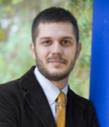 Jordi Vaquer i Fanés (Spain) is the Director of CIDOB, an international relations think tank based in Barcelona, Spain. He is the coordinator of EU4Seas, a European Commission funded research program bringing together partner institutions from 8 European countries to study the effects of EU policies on cooperation around the Mediterranean, Baltic, Caspian and Black Seas. Jordi joined the CIDOB staff as the Europe Program Coordinator in 2007. Prior to this he worked in the international affairs department of the Government of Catalonia, where he served in the Europe and in the Asia and Mediterranean sections before he became the Head of the International Relations Office. Most of his publications in English and Spanish focus on Spanish foreign policy, relations between the European Union and the countries of the Maghreb, and the conflict of Western Sahara. Jordi Vaquer i Fanés received a master's degree from the College of Europe in Bruges, Belgium, and he completed a Ph.D. in International Relations at the London School of Economics in 2004.
Jordi Vaquer i Fanés (Spain) is the Director of CIDOB, an international relations think tank based in Barcelona, Spain. He is the coordinator of EU4Seas, a European Commission funded research program bringing together partner institutions from 8 European countries to study the effects of EU policies on cooperation around the Mediterranean, Baltic, Caspian and Black Seas. Jordi joined the CIDOB staff as the Europe Program Coordinator in 2007. Prior to this he worked in the international affairs department of the Government of Catalonia, where he served in the Europe and in the Asia and Mediterranean sections before he became the Head of the International Relations Office. Most of his publications in English and Spanish focus on Spanish foreign policy, relations between the European Union and the countries of the Maghreb, and the conflict of Western Sahara. Jordi Vaquer i Fanés received a master's degree from the College of Europe in Bruges, Belgium, and he completed a Ph.D. in International Relations at the London School of Economics in 2004.
Belgrade
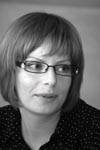 Hedvig Morvai-Horvat (Serbia) is Executive Director for the European Fund for the Balkans since 2007. Prior to this, she was director of the Citizens Pact for South Eastern Europe, a regional initiative focused on cross border and regional cooperation of local communities and NGOs in South East Europe. She began her civil activism in 1997, as a founder and vice president of the Hungarian Student Association of Vojvodina, later coordinating the Carpathian Information Exchange Network AGORA and engaged in the EXIT festival team. In 2006 she was awarded the Winning Freedom Award by the Belgrade-based Maja Marsicevic Tasic Foundation.
Hedvig Morvai-Horvat (Serbia) is Executive Director for the European Fund for the Balkans since 2007. Prior to this, she was director of the Citizens Pact for South Eastern Europe, a regional initiative focused on cross border and regional cooperation of local communities and NGOs in South East Europe. She began her civil activism in 1997, as a founder and vice president of the Hungarian Student Association of Vojvodina, later coordinating the Carpathian Information Exchange Network AGORA and engaged in the EXIT festival team. In 2006 she was awarded the Winning Freedom Award by the Belgrade-based Maja Marsicevic Tasic Foundation.
 Milica Delević (Serbia) is head of the European Integration Department of the government of Serbia. Previously she was Serbia's Assistant Foreign Minister in charge of European Integration. In 2003 she was head of the EU Integration Office for Serbia and Montenegro. She also teaches at Belgrade University. After the political changes after the fall of Milosević in October 2000, she became Deputy Director of the Diplomatic Academy in Belgrade. She had previously worked for an alternative education network. In 1996, she worked for the Belgrade Centre for Human Rights. She also was a teaching assistant in International Relations at Belgrade Law School. While a student Milica Delević worked at Radio B92 for several years after its launch in 1989. She studied at the University of Kent in Canterbury in 1999 and undertook European Studies at the Central European University in Prague in 1994. She began her studies in economics at the University of Belgrade in 1988.
Milica Delević (Serbia) is head of the European Integration Department of the government of Serbia. Previously she was Serbia's Assistant Foreign Minister in charge of European Integration. In 2003 she was head of the EU Integration Office for Serbia and Montenegro. She also teaches at Belgrade University. After the political changes after the fall of Milosević in October 2000, she became Deputy Director of the Diplomatic Academy in Belgrade. She had previously worked for an alternative education network. In 1996, she worked for the Belgrade Centre for Human Rights. She also was a teaching assistant in International Relations at Belgrade Law School. While a student Milica Delević worked at Radio B92 for several years after its launch in 1989. She studied at the University of Kent in Canterbury in 1999 and undertook European Studies at the Central European University in Prague in 1994. She began her studies in economics at the University of Belgrade in 1988.
Berlin
 Christian Altfuldisch (Germany) studied Political Sciences and International Law at the Freie Universität Berlin. During his studies he worked for a relief project for refugees in Kosovo and organised a Youth Week in the town of Gjakova in autumn 2000. For his Diploma Thesis he studied the democratisation process in Bosnia and Herzegovina. After graduation in 2002, he lived in Sarajevo and Melbourne, Australia working part-time for ESI and an international software company. Since summer 2004, Christian has been working full-time as project manager in ESI's Berlin office and has been involved in a number of research projects as well. He also developed the design of ESI's website. Next to his work, he is currently enrolled in a Master in EU Studies at CIFE online.
Christian Altfuldisch (Germany) studied Political Sciences and International Law at the Freie Universität Berlin. During his studies he worked for a relief project for refugees in Kosovo and organised a Youth Week in the town of Gjakova in autumn 2000. For his Diploma Thesis he studied the democratisation process in Bosnia and Herzegovina. After graduation in 2002, he lived in Sarajevo and Melbourne, Australia working part-time for ESI and an international software company. Since summer 2004, Christian has been working full-time as project manager in ESI's Berlin office and has been involved in a number of research projects as well. He also developed the design of ESI's website. Next to his work, he is currently enrolled in a Master in EU Studies at CIFE online.
 Besa Shahini (Kosovo/Canada) is ESI senior analyst working since summer 2008 on the ESI Caucasus project, managing our work in Georgia in particular. Prior to joining ESI, she was the co- founder and director of a Kosovo think tank - Kosovar Stablity Iniative (IKS). As the director, Besa oversaw the development of IKS, was responsible for fundraising and outreach and has coordinated and managed all IKS's research projects. In addition, Besa was involved in researching and writing the studies on the Socio-Economic Development of Pristina, and the Post War Reconstruction and Development in Kosovo. Besa has an undergraduate degree in Political Science and Public Administration from York University in Toronto and a Masters Degree from the Hertie School of Governance in Berlin.
Besa Shahini (Kosovo/Canada) is ESI senior analyst working since summer 2008 on the ESI Caucasus project, managing our work in Georgia in particular. Prior to joining ESI, she was the co- founder and director of a Kosovo think tank - Kosovar Stablity Iniative (IKS). As the director, Besa oversaw the development of IKS, was responsible for fundraising and outreach and has coordinated and managed all IKS's research projects. In addition, Besa was involved in researching and writing the studies on the Socio-Economic Development of Pristina, and the Post War Reconstruction and Development in Kosovo. Besa has an undergraduate degree in Political Science and Public Administration from York University in Toronto and a Masters Degree from the Hertie School of Governance in Berlin.
 Eggert Hardten (Germany) has been an analyst in many ESI projects in Bosnia, Kosovo, Serbia and Macedonia since 2000. He has a lifetime history of engagement with the former Yugoslavia and combines a broad knowledge of the history and political economy of the region with unrivalled practical experience in economic development, agriculture and local governance issues. Based in Berlin, he still spends considerable time in the field carrying out research and training young researchers in capacity building projects in Macedonia and Kosovo with different institutions.
Eggert Hardten (Germany) has been an analyst in many ESI projects in Bosnia, Kosovo, Serbia and Macedonia since 2000. He has a lifetime history of engagement with the former Yugoslavia and combines a broad knowledge of the history and political economy of the region with unrivalled practical experience in economic development, agriculture and local governance issues. Based in Berlin, he still spends considerable time in the field carrying out research and training young researchers in capacity building projects in Macedonia and Kosovo with different institutions.
 Kristóf Gosztonyi (Hungary) is a freelance consultant presently associated with the Berlin based consultancy ARC focusing on conflict research in Afghanistan and Central Asia. Until recently Kristóf Gosztonyi headed the Southeast Europe practice of Control-Risks, a multi-national business risk consultancy. He specialised in supporting multi-national companies in identifying and countering their corruption risks. Kristóf has also worked for international organisations in Afghanistan, Bosnia and Herzegovina and Sri Lanka. Mr. Gosztonyi studied social anthropology and Balkan studies the Freie Universität Berlin and political science at Yale University. He has extensive field work experience in the Balkans, Afghanistan and in Latin American and Southeast Asian (Vietnamese) migrant environments. His publications include such diverse topics as empirical conflict research, negotiations and corruption studies as well as IDP returns, economic development, good governance and local government capacity building.
Kristóf Gosztonyi (Hungary) is a freelance consultant presently associated with the Berlin based consultancy ARC focusing on conflict research in Afghanistan and Central Asia. Until recently Kristóf Gosztonyi headed the Southeast Europe practice of Control-Risks, a multi-national business risk consultancy. He specialised in supporting multi-national companies in identifying and countering their corruption risks. Kristóf has also worked for international organisations in Afghanistan, Bosnia and Herzegovina and Sri Lanka. Mr. Gosztonyi studied social anthropology and Balkan studies the Freie Universität Berlin and political science at Yale University. He has extensive field work experience in the Balkans, Afghanistan and in Latin American and Southeast Asian (Vietnamese) migrant environments. His publications include such diverse topics as empirical conflict research, negotiations and corruption studies as well as IDP returns, economic development, good governance and local government capacity building.
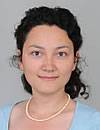 Yana Zabanova (Russia) joined ESI in June 2009 as a research intern. She holds an MA in International Relations and European Studies from Central European University and a Master's degree in public policy from the Hertie School of Governance in Berlin. Prior to joining ESI, she has worked as a policy analyst with the Buryat Republic Ministry of Economic Development, as a project assistant with the European Commission's TACIS programme in Russia, and conducted research at the German Institute for Economic Research (DIW) in Berlin. Yana's areas of interest include post-Soviet politics, energy security, and EU-Russia relations.
Yana Zabanova (Russia) joined ESI in June 2009 as a research intern. She holds an MA in International Relations and European Studies from Central European University and a Master's degree in public policy from the Hertie School of Governance in Berlin. Prior to joining ESI, she has worked as a policy analyst with the Buryat Republic Ministry of Economic Development, as a project assistant with the European Commission's TACIS programme in Russia, and conducted research at the German Institute for Economic Research (DIW) in Berlin. Yana's areas of interest include post-Soviet politics, energy security, and EU-Russia relations.
Bratislava
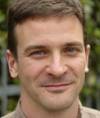 Milan Nič (Slovakia) joined the ESI team in May 2009. He worked as Advisor to the High Representative Miroslav Lajčák in Bosnia and Herzegovina (2007 – 2009). Milan was Program Director at the Pontis Foundation, a Bratislava-based NGO with assistance programs to civil society and young researchers in the Balkans and EU´s Eastern Neighborhood. Contribution to domestic debate on post-enlargement EU foreign policy won him the Karol Rybárik's Award for the best young professional in Slovak foreign policy (2004). He also worked as a broadcaster for the Radio Free Europe/Radio Liberty (1995 – 2002). He studied modern history, political science and international relations at the CEU Budapest and at SAIS Johns Hopkins University´s center in Bologna. Mr. Nič is a regular guest of Slovak and Czech TV news programs. He is also a blogger and member of the external Council of Advisors to the Slovak Foreign Minister.
Milan Nič (Slovakia) joined the ESI team in May 2009. He worked as Advisor to the High Representative Miroslav Lajčák in Bosnia and Herzegovina (2007 – 2009). Milan was Program Director at the Pontis Foundation, a Bratislava-based NGO with assistance programs to civil society and young researchers in the Balkans and EU´s Eastern Neighborhood. Contribution to domestic debate on post-enlargement EU foreign policy won him the Karol Rybárik's Award for the best young professional in Slovak foreign policy (2004). He also worked as a broadcaster for the Radio Free Europe/Radio Liberty (1995 – 2002). He studied modern history, political science and international relations at the CEU Budapest and at SAIS Johns Hopkins University´s center in Bologna. Mr. Nič is a regular guest of Slovak and Czech TV news programs. He is also a blogger and member of the external Council of Advisors to the Slovak Foreign Minister.
Brussels
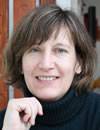 Alexandra Stiglmayer (Germany) is ESI's general secretary and one of ESI's founding members. A journalist by training, she covered the wars in former Yugoslavia from 1992 to 1996 for TIME Magazine, The Dallas Morning News, Die Woche and other US and German media. During that time, she wrote a book about war-time rape of women in Bosnia and Herzegovina. In 1997/1998, she was based in Berlin for TIME Magazine. From 1998 to 2002, she worked for the Office of the High Representative in Sarajevo as the head of the press office, chief spokesperson and media expert. Following three years as a speechwriter for the European Commission, she joined ESI in 2006 as a full-time senior analyst based in Brussels.
Alexandra Stiglmayer (Germany) is ESI's general secretary and one of ESI's founding members. A journalist by training, she covered the wars in former Yugoslavia from 1992 to 1996 for TIME Magazine, The Dallas Morning News, Die Woche and other US and German media. During that time, she wrote a book about war-time rape of women in Bosnia and Herzegovina. In 1997/1998, she was based in Berlin for TIME Magazine. From 1998 to 2002, she worked for the Office of the High Representative in Sarajevo as the head of the press office, chief spokesperson and media expert. Following three years as a speechwriter for the European Commission, she joined ESI in 2006 as a full-time senior analyst based in Brussels.
 Rainer Emschermann (Germany) is an economist currently working for the Enlargement Directorate-General of the European Commission. He is a member of the team leading the accession negotiations with Turkey and focuses on budget, competition, agriculture and civil society. Between 2000 and 2004, he worked in the cabinet of the European Commissioner for the Budget, and between 1995 and 1999 he was an adviser to the Greens in the European Parliament on the EU budget.
Rainer Emschermann (Germany) is an economist currently working for the Enlargement Directorate-General of the European Commission. He is a member of the team leading the accession negotiations with Turkey and focuses on budget, competition, agriculture and civil society. Between 2000 and 2004, he worked in the cabinet of the European Commissioner for the Budget, and between 1995 and 1999 he was an adviser to the Greens in the European Parliament on the EU budget.
Budapest
 Goran Buldioski (Macedonia) is Director of the Think Tank Fund, an independent program of the Open Society Institute. The Fund currently supports more than 50 think tanks in Western Balkans, Ukraine, Moldova and the South Caucasus. Prior to joining OSI, Mr. Buldioski worked for the Council of Europe, and for the Macedonian Center for International Cooperation and the National Youth Council in his native Macedonia. He has expertise in strategic planning and capacity building of NGOs and think tanks, organizational and project management, youth policy, and development of democratic and participatory policy processes in Eastern and Central Europe. His latest articles on think tanks appeared in UNDP_LSE Newsletter Development and Transition and Alliance Magazine.
Goran Buldioski (Macedonia) is Director of the Think Tank Fund, an independent program of the Open Society Institute. The Fund currently supports more than 50 think tanks in Western Balkans, Ukraine, Moldova and the South Caucasus. Prior to joining OSI, Mr. Buldioski worked for the Council of Europe, and for the Macedonian Center for International Cooperation and the National Youth Council in his native Macedonia. He has expertise in strategic planning and capacity building of NGOs and think tanks, organizational and project management, youth policy, and development of democratic and participatory policy processes in Eastern and Central Europe. His latest articles on think tanks appeared in UNDP_LSE Newsletter Development and Transition and Alliance Magazine.
 Scott Abrams (US) is the Deputy Program Director of LGI, Open Society Institute. He focuses on political and economic reform projects in South Eastern Europe, Indonesia, Mongolia and Peru. He manages LGI's local economic development initiative, relations with the Policy Association for Open Society (PASOS) and the Network of Associations of Local Authorities in South East Europe. He also works with the Soros national foundations in Albania, Bosnia-Herzegovina, Kosovo, Macedonia, Mongolia, Montenegro and Serbia and manages most LGI projects in those countries. Before joining LGI he worked in the Department of Peacekeeping Operations at the United Nations. Scott holds a BA in History and an MA in International Relations.
Scott Abrams (US) is the Deputy Program Director of LGI, Open Society Institute. He focuses on political and economic reform projects in South Eastern Europe, Indonesia, Mongolia and Peru. He manages LGI's local economic development initiative, relations with the Policy Association for Open Society (PASOS) and the Network of Associations of Local Authorities in South East Europe. He also works with the Soros national foundations in Albania, Bosnia-Herzegovina, Kosovo, Macedonia, Mongolia, Montenegro and Serbia and manages most LGI projects in those countries. Before joining LGI he worked in the Department of Peacekeeping Operations at the United Nations. Scott holds a BA in History and an MA in International Relations.
Innsbruck
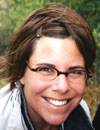 Verena Ringler (Austria) has most recently been working with the International Civilian Office in Kosovo. Before that she worked as an ESI analyst on European Enlargement until October 2006. She has been working as an international magazine editor and writer for Foreign Policy Magazine in Washington, D.C. since 2002 and for German-language magazines since 1996. Her work was published in profil, Die Zeit, Frankfurter Allgemeine Zeitung and the Zentralasiatisches Magazin, among others. Verena's reporting trips and election observation missions with the EU and the OSCE brought her to South-Eastern Europe, Central Asia, the Caucasus, Russia, and Lebanon. Verena has an M.A. in European Studies and Emerging Markets from SAIS and studied politics and magazine journalism in Vienna, Innsbruck and Uppsala.
Verena Ringler (Austria) has most recently been working with the International Civilian Office in Kosovo. Before that she worked as an ESI analyst on European Enlargement until October 2006. She has been working as an international magazine editor and writer for Foreign Policy Magazine in Washington, D.C. since 2002 and for German-language magazines since 1996. Her work was published in profil, Die Zeit, Frankfurter Allgemeine Zeitung and the Zentralasiatisches Magazin, among others. Verena's reporting trips and election observation missions with the EU and the OSCE brought her to South-Eastern Europe, Central Asia, the Caucasus, Russia, and Lebanon. Verena has an M.A. in European Studies and Emerging Markets from SAIS and studied politics and magazine journalism in Vienna, Innsbruck and Uppsala.
Istanbul
 Amberin Zaman (Turkey) has been the Turkey correspondent for The Economist since 1999. She has also been a regular contributor to The Washington Post, the Los Angeles Times, and the Daily Telegraph of London. Ms. Zaman is currently a regular contributor to the German Marshall Fund of the United States' On Turkey series.
Amberin Zaman (Turkey) has been the Turkey correspondent for The Economist since 1999. She has also been a regular contributor to The Washington Post, the Los Angeles Times, and the Daily Telegraph of London. Ms. Zaman is currently a regular contributor to the German Marshall Fund of the United States' On Turkey series.
 Anjeza Hoxhallari (Albania) joined ESI as an analyst in May 2008. She holds a BA in Sociology and an MA in European Studies from Bosphorus University in Istanbul. She is also working as an analyst for Agenda Institute, a Tirana-based think tank, where she is conducting research on competiveness and the Albanian economy.
Anjeza Hoxhallari (Albania) joined ESI as an analyst in May 2008. She holds a BA in Sociology and an MA in European Studies from Bosphorus University in Istanbul. She is also working as an analyst for Agenda Institute, a Tirana-based think tank, where she is conducting research on competiveness and the Albanian economy.
 Barcin Yinanc started her career in journalism in 1990 at Milliyet Daily. After working in Milliyet's Ankara office as a diplomatic reporter for over 10 years she became a TV reporter and worked for TV8 and CNN Turk as an editor of the news programme. For the past three years she worked as managing editor of English language Hurriyet Daily News (formerly Turkish Daily News). She studied international relations at Ankara's Middle East Technical University.
Barcin Yinanc started her career in journalism in 1990 at Milliyet Daily. After working in Milliyet's Ankara office as a diplomatic reporter for over 10 years she became a TV reporter and worked for TV8 and CNN Turk as an editor of the news programme. For the past three years she worked as managing editor of English language Hurriyet Daily News (formerly Turkish Daily News). She studied international relations at Ankara's Middle East Technical University.
 Delal Dink (Turkey) is one of the board members of the International Hrant Dink Foundation, which was founded in 2007 after the assassination of leading Turkish Armenian journalist Hrant Dink. The foundation works in the area of democratization and human rights, and specific areas of activities are recognition of cultural diversity, acknowledgment of the differences, creating equal educational opportunities, improving dialogue among the peoples of Turkey, Armenia and Europe. She coordinates and manages the projects, and helps the fundraising activities.
Delal Dink (Turkey) is one of the board members of the International Hrant Dink Foundation, which was founded in 2007 after the assassination of leading Turkish Armenian journalist Hrant Dink. The foundation works in the area of democratization and human rights, and specific areas of activities are recognition of cultural diversity, acknowledgment of the differences, creating equal educational opportunities, improving dialogue among the peoples of Turkey, Armenia and Europe. She coordinates and manages the projects, and helps the fundraising activities.
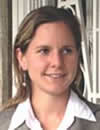 Diba Nigar Göksel (Turkey/US) joined the European Stability Initiative (ESI) in 2004. She works as a Senior Analyst on Turkey and has been managing the ESI Caucasus project since 2007. She is also Editor-in-Chief of Turkish Policy Quarterly (TPQ) since 2003. She began her career working for the Azerbaijan Embassy in Washington DC in 1998 and since has done project management, research and advocacy with various NGOs based in both Washington DC and Istanbul, including TUSIAD, IREX, TESEV, and the ARI Movement.
Diba Nigar Göksel (Turkey/US) joined the European Stability Initiative (ESI) in 2004. She works as a Senior Analyst on Turkey and has been managing the ESI Caucasus project since 2007. She is also Editor-in-Chief of Turkish Policy Quarterly (TPQ) since 2003. She began her career working for the Azerbaijan Embassy in Washington DC in 1998 and since has done project management, research and advocacy with various NGOs based in both Washington DC and Istanbul, including TUSIAD, IREX, TESEV, and the ARI Movement.
 Ekrem Eddy Güzeldere (Germany) started to work in ESI's Istanbul office in April 2007. He completed a masters degree in political sciences at the Free University of Berlin and the post-graduate "Euromasters" degree at universities in Bath, Paris, and Madrid. Before joining ESI he worked in Brussels in the European Parliament, as editor for the communication agency Walueurope in Rome and as project coordinator for the Heinrich Böll Foundation in Istanbul, where he was responsible for projects in the fields of human rights and ecology.
Ekrem Eddy Güzeldere (Germany) started to work in ESI's Istanbul office in April 2007. He completed a masters degree in political sciences at the Free University of Berlin and the post-graduate "Euromasters" degree at universities in Bath, Paris, and Madrid. Before joining ESI he worked in Brussels in the European Parliament, as editor for the communication agency Walueurope in Rome and as project coordinator for the Heinrich Böll Foundation in Istanbul, where he was responsible for projects in the fields of human rights and ecology.
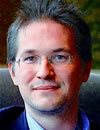 Gerald Knaus (Austria) is founding chairman of the European Stability Initiative (ESI). He studied in Oxford, Brussels and Bologna. He taught economics at the State University of Chernivtsi in Ukraine and worked for five years in Bulgaria and Bosnia for NGOs and international organizations. He was director of the Lessons Learned Unit of the EU Pillar of the UN Mission in Kosovo (from 2001 to 2004). Gerald published many articles that have triggered wide public debates, including "Travails of the European Raj" on Bosnia (2003) and "Member State Building and the Helsinki Moment" on the EU role in the Balkans (2004). He also co-authored more than 60 ESI reports as well as many scripts for TV documentaries on South East Europe. He is a founding member of the European Council on Foreign Relations and a 2007/2008 Open Society Fellow. Since 2004 he is based in Istanbul.
Gerald Knaus (Austria) is founding chairman of the European Stability Initiative (ESI). He studied in Oxford, Brussels and Bologna. He taught economics at the State University of Chernivtsi in Ukraine and worked for five years in Bulgaria and Bosnia for NGOs and international organizations. He was director of the Lessons Learned Unit of the EU Pillar of the UN Mission in Kosovo (from 2001 to 2004). Gerald published many articles that have triggered wide public debates, including "Travails of the European Raj" on Bosnia (2003) and "Member State Building and the Helsinki Moment" on the EU role in the Balkans (2004). He also co-authored more than 60 ESI reports as well as many scripts for TV documentaries on South East Europe. He is a founding member of the European Council on Foreign Relations and a 2007/2008 Open Society Fellow. Since 2004 he is based in Istanbul.
 Jonathan Lewis (UK) is a professional photographer based in Istanbul. Having broken free from a life in international telecoms and undersea cable systems, Jonathan now works freelance covering current news events, documentary work and features. His work has been published in multiple publications across Europe, Africa and the Middle East. To relax, he is currently concentrating on long-term social documentary projects in Turkey and neighbouring countries in the region.
Jonathan Lewis (UK) is a professional photographer based in Istanbul. Having broken free from a life in international telecoms and undersea cable systems, Jonathan now works freelance covering current news events, documentary work and features. His work has been published in multiple publications across Europe, Africa and the Middle East. To relax, he is currently concentrating on long-term social documentary projects in Turkey and neighbouring countries in the region.
 Katharina Knaus (Austria) is an ESI analyst working on Turkey. Having studied law in Vienna and Brussels, she published on EU refugee law and worked as a counselor to refugees from Bosnia. She moved to Sarajevo in 1997, where she joined the Boltzmann Institute for Human Rights, reporting on war crimes in Bosnia and Kosovo. She later worked for the OSCE and the Human Rights Coordination Center at the Office of the High Representative in Sarajevo. She has also researched and published on human trafficking with a focus on women trafficking in Southeastern Europe.She has been part of the ESI team since 2006.
Katharina Knaus (Austria) is an ESI analyst working on Turkey. Having studied law in Vienna and Brussels, she published on EU refugee law and worked as a counselor to refugees from Bosnia. She moved to Sarajevo in 1997, where she joined the Boltzmann Institute for Human Rights, reporting on war crimes in Bosnia and Kosovo. She later worked for the OSCE and the Human Rights Coordination Center at the Office of the High Representative in Sarajevo. She has also researched and published on human trafficking with a focus on women trafficking in Southeastern Europe.She has been part of the ESI team since 2006.
 Michael Thumann (Germany) has been the Middle East Bureau Chief of Die Zeit in Istanbul since October 2007. Before, he was the Foreign Editor of Die Zeit in Hamburg. Between 1996 and 2001, he reported on Russia and Central Asia as the Moscow Bureau Chief of Die Zeit. During the Yugoslav succession war in the 1990s, he worked as Die Zeit's correspondent for South Eastern Europe. In the fall of 2000, he did research as a Public Policy Scholar at the Woodrow Wilson International Center for Scholars (WWIC) in Washington, D.C. Currently, he is a member of the Advisory Council of the Kennan Institute at the WWIC. He studied History, Political Science and Slavic Literatures at the Free University in Berlin, at Columbia University in New York and at the Leningrad State University.
Michael Thumann (Germany) has been the Middle East Bureau Chief of Die Zeit in Istanbul since October 2007. Before, he was the Foreign Editor of Die Zeit in Hamburg. Between 1996 and 2001, he reported on Russia and Central Asia as the Moscow Bureau Chief of Die Zeit. During the Yugoslav succession war in the 1990s, he worked as Die Zeit's correspondent for South Eastern Europe. In the fall of 2000, he did research as a Public Policy Scholar at the Woodrow Wilson International Center for Scholars (WWIC) in Washington, D.C. Currently, he is a member of the Advisory Council of the Kennan Institute at the WWIC. He studied History, Political Science and Slavic Literatures at the Free University in Berlin, at Columbia University in New York and at the Leningrad State University.
 Piotr Zalewski (Poland) joined ESI in November 2008. He holds a BA degree in history from Columbia University, as well as graduate degrees from the Jagiellonian University (ethnology), the University of Exeter (European studies), and the College of Europe (European politics and administration). Prior to joining ESI, he worked as an EU adviser to the Bureau of the Legislative Council of Poland (2003), program coordinator at the Centre for International Relations (2004-2005) and press officer at the European Parliament (2005-2008).
Piotr Zalewski (Poland) joined ESI in November 2008. He holds a BA degree in history from Columbia University, as well as graduate degrees from the Jagiellonian University (ethnology), the University of Exeter (European studies), and the College of Europe (European politics and administration). Prior to joining ESI, he worked as an EU adviser to the Bureau of the Legislative Council of Poland (2003), program coordinator at the Centre for International Relations (2004-2005) and press officer at the European Parliament (2005-2008).
 Sandra Bien-Aime (France) joined ESI as Executive Assistant in June 2007 is responsible for project coordination. She studied Media communication and Cultural studies at Bath Spa University. Sandra has lived in England for nine years, working in event management for several years. She has worked as an event assistant at the British Safety Council preparing Health and Safety Awards events. After that she worked as a meetings and events executive at the Berners Hotel, a four-star hotel in the heart of London. Since early 2009 she became ESI chief financial officer.
Sandra Bien-Aime (France) joined ESI as Executive Assistant in June 2007 is responsible for project coordination. She studied Media communication and Cultural studies at Bath Spa University. Sandra has lived in England for nine years, working in event management for several years. She has worked as an event assistant at the British Safety Council preparing Health and Safety Awards events. After that she worked as a meetings and events executive at the Berners Hotel, a four-star hotel in the heart of London. Since early 2009 she became ESI chief financial officer.
 Susanne Landwehr (Germany) joined ESI as an analyst in May 2008. She is currently researching Turkish-Armenian relations and Russia's Policy in the Southern Caucasus. Prior to joining ESI, Susanne was a project leader for the ‘WerteDialog' (Discussion of values) project at the Alfred Toepfer Foundation in Hamburg, where she also was responsible for public relations. Susanne worked as an editor at the economic desk of the Frankfurter Allgemeine Zeitung and as an economic correspondent for Süddeutsche Zeitung, Wirtschaftswoche and Börsen-Zeitung in Moscow. She studied at the Berlin Advanced School of Journalism and graduated from the Free University of Berlin, having majored in Slavic Literature, French Literature and Economics.
Susanne Landwehr (Germany) joined ESI as an analyst in May 2008. She is currently researching Turkish-Armenian relations and Russia's Policy in the Southern Caucasus. Prior to joining ESI, Susanne was a project leader for the ‘WerteDialog' (Discussion of values) project at the Alfred Toepfer Foundation in Hamburg, where she also was responsible for public relations. Susanne worked as an editor at the economic desk of the Frankfurter Allgemeine Zeitung and as an economic correspondent for Süddeutsche Zeitung, Wirtschaftswoche and Börsen-Zeitung in Moscow. She studied at the Berlin Advanced School of Journalism and graduated from the Free University of Berlin, having majored in Slavic Literature, French Literature and Economics.
Kabul
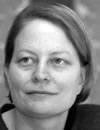 Minna Järvenpää (Finland) currently works in Kabul, Afghanistan, as the Head of Analysis and Planning in the UNAMA mission. Before this, she worked on Afghanistan, Iraq and Somalia for the British Government's Stabilisation Unit, and as Senior Advisor to former Finnish President Martti Ahtisaari, supporting a range of crisis management initiatives throughout Europe. Minna's involvement in the Balkan region spanned nine years during which she spent two years working for UNMIK in Kosovo as Strategy Advisor to Special Representative of the Secretary General and then municipal administrator in Mitrovica until April 2004. She previously worked as ESI analyst covering Serbia and Montenegro and Macedonia, and from 1996-1998 as political and refugee affairs advisor to the High Representative in Sarajevo, Bosnia. Minna has a background in international relations from Harvard and the London School of Economics.
Minna Järvenpää (Finland) currently works in Kabul, Afghanistan, as the Head of Analysis and Planning in the UNAMA mission. Before this, she worked on Afghanistan, Iraq and Somalia for the British Government's Stabilisation Unit, and as Senior Advisor to former Finnish President Martti Ahtisaari, supporting a range of crisis management initiatives throughout Europe. Minna's involvement in the Balkan region spanned nine years during which she spent two years working for UNMIK in Kosovo as Strategy Advisor to Special Representative of the Secretary General and then municipal administrator in Mitrovica until April 2004. She previously worked as ESI analyst covering Serbia and Montenegro and Macedonia, and from 1996-1998 as political and refugee affairs advisor to the High Representative in Sarajevo, Bosnia. Minna has a background in international relations from Harvard and the London School of Economics.
London
 Felix Martin (UK) has been a member of ESI since 2000, and has served as its General Secretary from 2002 to 2008. Felix has spent two spells working for the World Bank on the Balkans: first, between 1999 and 2002 on the energy sectors of Bosnia and Herzegovina, Serbia, and Kosovo; and latterly (since March 2006) as the Bank's Country Economist for Kosovo. In between, he got a doctorate in economics from Oxford University, was an ESI analyst for Bosnia and Herzegovina, and worked as an economist for Thames River Capital, a London investment house. Felix also has degrees from Oxford in Classics and Philosophy and Development Economics, and from Johns Hopkins SAIS in International Relations. He is currently working for Thames River Capital in the City of London.
Felix Martin (UK) has been a member of ESI since 2000, and has served as its General Secretary from 2002 to 2008. Felix has spent two spells working for the World Bank on the Balkans: first, between 1999 and 2002 on the energy sectors of Bosnia and Herzegovina, Serbia, and Kosovo; and latterly (since March 2006) as the Bank's Country Economist for Kosovo. In between, he got a doctorate in economics from Oxford University, was an ESI analyst for Bosnia and Herzegovina, and worked as an economist for Thames River Capital, a London investment house. Felix also has degrees from Oxford in Classics and Philosophy and Development Economics, and from Johns Hopkins SAIS in International Relations. He is currently working for Thames River Capital in the City of London.
 Nicu Popescu (Moldova) is ECFR analyst on the EU's Eastern neighbourhood and Russia. He holds a doctorate in International Relations from the Central European University in Budapest, Hungary. In 2005-2007, Nicu was research fellow at the Centre for European Policy Studies, Brussels and was previously a visiting fellow at the EU Institute for Security Studies, Paris. His areas of expertise are the European Neighbourhood Policy, secessionist conflicts in the post-soviet space, EU relations with Russia, Moldova, Ukraine and the South Caucasus.
Nicu Popescu (Moldova) is ECFR analyst on the EU's Eastern neighbourhood and Russia. He holds a doctorate in International Relations from the Central European University in Budapest, Hungary. In 2005-2007, Nicu was research fellow at the Centre for European Policy Studies, Brussels and was previously a visiting fellow at the EU Institute for Security Studies, Paris. His areas of expertise are the European Neighbourhood Policy, secessionist conflicts in the post-soviet space, EU relations with Russia, Moldova, Ukraine and the South Caucasus.
 Marcus Cox (Australia) is ESI's Senior Editor and longest serving analyst. For many years he managed the ESI office in Sarajevo and co-ordinated the research team for the substantial Bosnian Governance Assessment project, supported by Britain's Department for International Development. An international lawyer by profession, he has worked in Bosnia since 1996, including as an advisor to the High Representative and Senior Legal Advisor to the Property Commission, and has acted as consultant to international missions on refugee and property issues in a number of other countries. He is also a consultant on development issues based in London and involved in a large number of projects across the world financed by different donors. Marcus has completed a PhD at Cambridge University on the creation of the Bosnian state.
Marcus Cox (Australia) is ESI's Senior Editor and longest serving analyst. For many years he managed the ESI office in Sarajevo and co-ordinated the research team for the substantial Bosnian Governance Assessment project, supported by Britain's Department for International Development. An international lawyer by profession, he has worked in Bosnia since 1996, including as an advisor to the High Representative and Senior Legal Advisor to the Property Commission, and has acted as consultant to international missions on refugee and property issues in a number of other countries. He is also a consultant on development issues based in London and involved in a large number of projects across the world financed by different donors. Marcus has completed a PhD at Cambridge University on the creation of the Bosnian state.
Pristina
 Engjellushe Morina (Kosovo/Macedonia) is Executive Director of Iniciativa Kosovare per Stabilitet (IKS) based in Pristina, Kosovo. Engjellushe accomplished a graduate degree in diplomatic studies at the University of Oxford, UK. Prior to her joining IKS she was responsible for the Higher Education portfolio at the Public Diplomacy Section, U.S. Embassy, Pristina. In that capacity Engjellushe was responsible for Educational Programs and Exchanges such as Fulbright and Hubert Humphrey Fellowships. During the negotiating process for the final status of Kosovo, Engjellushe served as expert and consultant in the Cultural Heritage group within the Unity Team. Her input focused in particular on the protection of Cultural and Religious Heritage in Kosovo. Engjellushe's initial training was in Archaeology, she gained her BA (Hons.) from the Institute of Archaeology at the University College London (UCL), UK, and worked as archaeologist in countries of Egypt, Albania, Italy and UK. In 1999 Engjellushe resolved to return to Kosovo and become part of re-building her country where she voluntarily helped set up the third largest political party.
Engjellushe Morina (Kosovo/Macedonia) is Executive Director of Iniciativa Kosovare per Stabilitet (IKS) based in Pristina, Kosovo. Engjellushe accomplished a graduate degree in diplomatic studies at the University of Oxford, UK. Prior to her joining IKS she was responsible for the Higher Education portfolio at the Public Diplomacy Section, U.S. Embassy, Pristina. In that capacity Engjellushe was responsible for Educational Programs and Exchanges such as Fulbright and Hubert Humphrey Fellowships. During the negotiating process for the final status of Kosovo, Engjellushe served as expert and consultant in the Cultural Heritage group within the Unity Team. Her input focused in particular on the protection of Cultural and Religious Heritage in Kosovo. Engjellushe's initial training was in Archaeology, she gained her BA (Hons.) from the Institute of Archaeology at the University College London (UCL), UK, and worked as archaeologist in countries of Egypt, Albania, Italy and UK. In 1999 Engjellushe resolved to return to Kosovo and become part of re-building her country where she voluntarily helped set up the third largest political party.
 Verena Knaus (Austria) returned to the Balkans in early 2008 to head ESI's research and outreach efforts based in Pristina. From 2004 till summer 2007, she was a senior analyst managing the ESI Turkey project, focusing mainly on Turkey's Europeanisation process, social and economic change in Central and Southeast Anatolia and the position of women. Throughout these years Verena worked closely with emerging think tanks in Kosovo, Macedonia and Albania as part of the ESI capacity building programme. Prior to that she was one of the leading researchers in the field for the Lessons Learned and Analysis Unit in Kosovo, a joint project of ESI and the EU Pillar of UNMIK. She has been with ESI since its inception in 1999, helping to turn it from a network of Balkan enthusiasts into a strong institution with a permanent presence across the region. Verena studied modern history at Oxford University and international relations and economics at SAIS in Bologna. She is also a World Fellow of Yale University and co-author of the first ever English-language guidebook dedicated to Kosovo.
Verena Knaus (Austria) returned to the Balkans in early 2008 to head ESI's research and outreach efforts based in Pristina. From 2004 till summer 2007, she was a senior analyst managing the ESI Turkey project, focusing mainly on Turkey's Europeanisation process, social and economic change in Central and Southeast Anatolia and the position of women. Throughout these years Verena worked closely with emerging think tanks in Kosovo, Macedonia and Albania as part of the ESI capacity building programme. Prior to that she was one of the leading researchers in the field for the Lessons Learned and Analysis Unit in Kosovo, a joint project of ESI and the EU Pillar of UNMIK. She has been with ESI since its inception in 1999, helping to turn it from a network of Balkan enthusiasts into a strong institution with a permanent presence across the region. Verena studied modern history at Oxford University and international relations and economics at SAIS in Bologna. She is also a World Fellow of Yale University and co-author of the first ever English-language guidebook dedicated to Kosovo.
Rome
 Emmanuela C. del Re (Italy) is an academic who has published extensively on Albania and the Balkans. With a background in social and political anthropology, she has lived and worked with Albanian communities since 1991 and has published extensively on Albania's turbulent post-communist transition. Based at the Sapienza University of Rome, Emmanuela's research has included evaluations of international programmes in the region, as well as topics such as the evolution of the KLA and patterns of illicit traffic in the region.
Emmanuela C. del Re (Italy) is an academic who has published extensively on Albania and the Balkans. With a background in social and political anthropology, she has lived and worked with Albanian communities since 1991 and has published extensively on Albania's turbulent post-communist transition. Based at the Sapienza University of Rome, Emmanuela's research has included evaluations of international programmes in the region, as well as topics such as the evolution of the KLA and patterns of illicit traffic in the region.
Sarajevo
 Alida Vracic (Bosnia-Herzegovina) is the executive director and founder of the Sarajevo-based think-tank Populari, which focuses on political, economic and social issues in Bosnia and Herzegovina. A lawyer by education, Alida previously worked for the War Crimes Chamber of Bosnia's State Court and the Human Rights Commission of the country's Constitutional Court. Her affiliation with ESI goes back to 2000 when she joined the ESI team conducting a large-scale governance assessment in Bosnia. Until 2004, she worked partly full-time, partly part-time on ESI Bosnia projects, which also gave her time to act as the Balkans Programme Manager for the Ombudsmen of Spain and Catalonia and the Madrid Bar Association. In the late 1990s, Alida managed several Balkans projects for the Human Rights Centre of the University of Sarajevo and for the Spanish Institutional Programme. Alida holds a Master's degree in International Public Policy from the University of London and a B.A. from the Sarajevo Law Faculty.
Alida Vracic (Bosnia-Herzegovina) is the executive director and founder of the Sarajevo-based think-tank Populari, which focuses on political, economic and social issues in Bosnia and Herzegovina. A lawyer by education, Alida previously worked for the War Crimes Chamber of Bosnia's State Court and the Human Rights Commission of the country's Constitutional Court. Her affiliation with ESI goes back to 2000 when she joined the ESI team conducting a large-scale governance assessment in Bosnia. Until 2004, she worked partly full-time, partly part-time on ESI Bosnia projects, which also gave her time to act as the Balkans Programme Manager for the Ombudsmen of Spain and Catalonia and the Madrid Bar Association. In the late 1990s, Alida managed several Balkans projects for the Human Rights Centre of the University of Sarajevo and for the Spanish Institutional Programme. Alida holds a Master's degree in International Public Policy from the University of London and a B.A. from the Sarajevo Law Faculty.
 Gianni La Ferrara (Italy) is a lawyer and management consultant who for the past decade has assisted governments in the Western Balkans in building up their administrative capacity. Between 1998 and 2000, he worked as a legal adviser to the High Representative in Sarajevo. During that time, he became involed with ESI. Until 1998, Gianni worked as legal adviser to public institutions in Europe and Southern Africa. Gianni's postgraduate studies have been in public law and management. He is based in Sarajevo.
Gianni La Ferrara (Italy) is a lawyer and management consultant who for the past decade has assisted governments in the Western Balkans in building up their administrative capacity. Between 1998 and 2000, he worked as a legal adviser to the High Representative in Sarajevo. During that time, he became involed with ESI. Until 1998, Gianni worked as legal adviser to public institutions in Europe and Southern Africa. Gianni's postgraduate studies have been in public law and management. He is based in Sarajevo.
Stockholm
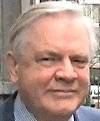 Erik Pierre (Sweden) was the first chairman of ESI's senior advisory board. During a distinguished career in the Swedish diplomatic service, Erik Pierre served in China and Washington D.C., and is now Director of the Stockholm Region's Office to the European Union in Brussels. Erik Pierre has been intimately involved in South Eastern European affairs and the development of international responses, both as Ambassador to Bosnia and Herzegovina and to Macedonia until 1996.
Erik Pierre (Sweden) was the first chairman of ESI's senior advisory board. During a distinguished career in the Swedish diplomatic service, Erik Pierre served in China and Washington D.C., and is now Director of the Stockholm Region's Office to the European Union in Brussels. Erik Pierre has been intimately involved in South Eastern European affairs and the development of international responses, both as Ambassador to Bosnia and Herzegovina and to Macedonia until 1996.
Tbilisi
 Ivane Chkhikvadze (Georgia) has been working full-time for ESI since April 2009. Before, he worked for the Eurasia Partnership Foundation and prior to joining the Foundation, he worked at the Office of the State Minister on European and Euro-Atlantic Integration of Georgia, where he assisted in monitoring and evaluating implementation of EU programs in the field of economic integration, public awareness, capacity building, education and trafficking. Ivane also supervised the implementation of EU projects related to regional cooperation. He has extensive experience working both at the Parliament and the State Chancellery of Georgia. Ivane has a Master's Degree from the College of Europe in European Advanced Interdisciplinary Studies, as well as from the Georgian Institute of Public Affairs, in Policy Analysis.
Ivane Chkhikvadze (Georgia) has been working full-time for ESI since April 2009. Before, he worked for the Eurasia Partnership Foundation and prior to joining the Foundation, he worked at the Office of the State Minister on European and Euro-Atlantic Integration of Georgia, where he assisted in monitoring and evaluating implementation of EU programs in the field of economic integration, public awareness, capacity building, education and trafficking. Ivane also supervised the implementation of EU projects related to regional cooperation. He has extensive experience working both at the Parliament and the State Chancellery of Georgia. Ivane has a Master's Degree from the College of Europe in European Advanced Interdisciplinary Studies, as well as from the Georgian Institute of Public Affairs, in Policy Analysis.
 Ketevan Tsikhelashvili (Georgia) is an ESI analyst in Georgia since December 2007. She holds an MA in International Relations and European Studies (CEU, Budapest, Hungary) and works now towards her PhD. She directs simultaneously the Tbilisi-based NGO - Foundation Liberal Academy-Tbilisi and consults Friedrich Naumann Foundation for Liberty (FNF) project in Georgia. Prior to joining ESI, she was a country coordinator for FNF in Georgia. For the past few years she has also worked as a special assistant to the State Minister on Conflict Resolution of Georgia and the project manager at International Center on Conflict and Negotiation (ICCN). Ketevan was involved with several international organizations such as European Center on Minority Issues (ECMI, Flensburg, Germany) as a visiting researcher, Center for OSCE research, University of Hamburg (CORE, Hamburg, Germany) as a local researcher, Transitions Online editorial (TOL, Prague, Czech Republic) as editorial assistant and Parliamentary Assembly of NATO (Brussels, Belgium) as a research assistant.
Ketevan Tsikhelashvili (Georgia) is an ESI analyst in Georgia since December 2007. She holds an MA in International Relations and European Studies (CEU, Budapest, Hungary) and works now towards her PhD. She directs simultaneously the Tbilisi-based NGO - Foundation Liberal Academy-Tbilisi and consults Friedrich Naumann Foundation for Liberty (FNF) project in Georgia. Prior to joining ESI, she was a country coordinator for FNF in Georgia. For the past few years she has also worked as a special assistant to the State Minister on Conflict Resolution of Georgia and the project manager at International Center on Conflict and Negotiation (ICCN). Ketevan was involved with several international organizations such as European Center on Minority Issues (ECMI, Flensburg, Germany) as a visiting researcher, Center for OSCE research, University of Hamburg (CORE, Hamburg, Germany) as a local researcher, Transitions Online editorial (TOL, Prague, Czech Republic) as editorial assistant and Parliamentary Assembly of NATO (Brussels, Belgium) as a research assistant.
Tirana
 Ajola Xoxa holds an International and European Law degree awarded with excellence in merits from University of "Paris 1 – Sorbonne". She holds a Master in International Commercial and Trade Law and a minor in Arbitration. She has been working with many national and international organizations and institutions, as AYC, ICS, War Child, TYC, ARCI Cultura e Sviluppo, IUC, Amnesty International, UNDP. She is founder of the Albanian Students Abroad Network and Coordinator of the Albanian Youth Parliament project. She has served as Implementer, Fundraiser and Legal Consultant to UNICEF for the ‘Albania Reads' project. She has been Consultant for UNESCO and has also worked as intern in the Ministry of Foreign Affairs and several French and Albanian legal studios.
Ajola Xoxa holds an International and European Law degree awarded with excellence in merits from University of "Paris 1 – Sorbonne". She holds a Master in International Commercial and Trade Law and a minor in Arbitration. She has been working with many national and international organizations and institutions, as AYC, ICS, War Child, TYC, ARCI Cultura e Sviluppo, IUC, Amnesty International, UNDP. She is founder of the Albanian Students Abroad Network and Coordinator of the Albanian Youth Parliament project. She has served as Implementer, Fundraiser and Legal Consultant to UNICEF for the ‘Albania Reads' project. She has been Consultant for UNESCO and has also worked as intern in the Ministry of Foreign Affairs and several French and Albanian legal studios.
 Arbjan Mazniku (Albania) is the Executive Director of Agenda Institute, a think-tank in Tirana that undertakes research and analysis on public policies in Albania, particularly in the fields of good governance, European integration and economic and social development. Prior to taking up this responsibility in January 2008, Arbjan worked for MJAFT! (Enough! in English), Albania's most successful civic movement that grew out of a youth movement. MJAFT seeks to achieve a well-governed Albania with active citizens, strong communities and a positive image in the world. Between 2005 and 2007, Arbjan was Policy Director at MJAFT, and between 2003 and 2005, he was MJAFT's Communications Director. Before joining MJAFT, Arbjan ran the Albanian National Debate Association for three years, coordinating the debate programmes of Albania's universities and high schools. Arbjan holds a Master's degree in Political Communications from the University of Sheffield in the UK and, prior to that, studied journalism at the University of Tirana.
Arbjan Mazniku (Albania) is the Executive Director of Agenda Institute, a think-tank in Tirana that undertakes research and analysis on public policies in Albania, particularly in the fields of good governance, European integration and economic and social development. Prior to taking up this responsibility in January 2008, Arbjan worked for MJAFT! (Enough! in English), Albania's most successful civic movement that grew out of a youth movement. MJAFT seeks to achieve a well-governed Albania with active citizens, strong communities and a positive image in the world. Between 2005 and 2007, Arbjan was Policy Director at MJAFT, and between 2003 and 2005, he was MJAFT's Communications Director. Before joining MJAFT, Arbjan ran the Albanian National Debate Association for three years, coordinating the debate programmes of Albania's universities and high schools. Arbjan holds a Master's degree in Political Communications from the University of Sheffield in the UK and, prior to that, studied journalism at the University of Tirana.
 Endri Fuga was one of the founders of MJAFT movement. He studied in La Sapienza University in Rome and Webster University in Vienna. He has volunteered for the Albanian Red Cross and the Albanian Youth Council. Currently he is working as an advisor to and spokesperson for the leader of the Albanian Socialist Party, Edi Rama.
Endri Fuga was one of the founders of MJAFT movement. He studied in La Sapienza University in Rome and Webster University in Vienna. He has volunteered for the Albanian Red Cross and the Albanian Youth Council. Currently he is working as an advisor to and spokesperson for the leader of the Albanian Socialist Party, Edi Rama.
 Erion Veliaj (Albania) is leading G99, a new Albanian political party. Previously he headed the MJAFT Movement from 2003-2007, Albania's leading watchdog and civil society pressure group and recipient of the 2004 UN Civil society award. In 2008 he worked as ESI analyst based in Tirana. Erion has worked for many international organisations and UN agencies, the US Department of State, OSCE, the Council of Europe and the Open Society Institute. He is a member of the Board of Directors of the Balkan Children and Youth Foundation and several regional philanthropies and think-tanks. Erion graduated from Grand Valley State University, USA and received his M.A. in European Politics from the University of Sussex, UK. Prior, he worked in the Balkans, Caucasus, Central and South America and East Africa. Erion is a frequent speaker on Albania and the Balkans in the European Parliament, US Congress, as well as other fora and university campuses.
Erion Veliaj (Albania) is leading G99, a new Albanian political party. Previously he headed the MJAFT Movement from 2003-2007, Albania's leading watchdog and civil society pressure group and recipient of the 2004 UN Civil society award. In 2008 he worked as ESI analyst based in Tirana. Erion has worked for many international organisations and UN agencies, the US Department of State, OSCE, the Council of Europe and the Open Society Institute. He is a member of the Board of Directors of the Balkan Children and Youth Foundation and several regional philanthropies and think-tanks. Erion graduated from Grand Valley State University, USA and received his M.A. in European Politics from the University of Sussex, UK. Prior, he worked in the Balkans, Caucasus, Central and South America and East Africa. Erion is a frequent speaker on Albania and the Balkans in the European Parliament, US Congress, as well as other fora and university campuses.
Vienna
 Gerda Vogl (Austria) is Political Advisor to the Austrian Foreign Minister since March 2007. Previously she has been Political Advisor to the EU Special Representative in Skopje, Macedonia (2006 – 2007), First Secretary, Permanent Mission of Austria to the United Nations, New York (2003 – 2006) and Head of Office, Austrian Liaison Office Pristina, Kosovo (2002 – 2003).
Gerda Vogl (Austria) is Political Advisor to the Austrian Foreign Minister since March 2007. Previously she has been Political Advisor to the EU Special Representative in Skopje, Macedonia (2006 – 2007), First Secretary, Permanent Mission of Austria to the United Nations, New York (2003 – 2006) and Head of Office, Austrian Liaison Office Pristina, Kosovo (2002 – 2003).
 Knut Neumayer is Programme Director Europe at ERSTE Foundation since 2005. He studied business administration at the University of Economics in Vienna. During his studies he developed training manuals and country reports for BP Austria AG CEDG (Central European Development Group). From 1994 to 2001 he worked at the Austrian Cultural Service (ÖKS) where he designed and implemented programmes in the field of Arts and Education. The last three years he was Head of Marketing at the Austrian newspaper "Der Standard". Together with A1, an Austrian Mobile Service Provider, he set up an innovative crossmedia campaign for MMS (Multimedia Messaging Service) and won two Golden Lions at the International Advertising Festival in Cannes 2003.
Knut Neumayer is Programme Director Europe at ERSTE Foundation since 2005. He studied business administration at the University of Economics in Vienna. During his studies he developed training manuals and country reports for BP Austria AG CEDG (Central European Development Group). From 1994 to 2001 he worked at the Austrian Cultural Service (ÖKS) where he designed and implemented programmes in the field of Arts and Education. The last three years he was Head of Marketing at the Austrian newspaper "Der Standard". Together with A1, an Austrian Mobile Service Provider, he set up an innovative crossmedia campaign for MMS (Multimedia Messaging Service) and won two Golden Lions at the International Advertising Festival in Cannes 2003.
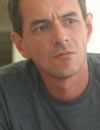 Kristof Bender (Austria) is ESI's Deputy Chairman. He leads various ESI research projects on EU enlargement and on South Eastern Europe. Educated in sociology in Vienna and Paris, he has worked in South East Europe in various capacities since 1997, including managing higher education projects in Bosnia for the World University Service, as Attaché for Humanitarian Affairs in the Austrian Embassy in Belgrade, as a researcher for the International Centre for Migration Policy Development and as a consultant for various institutions, including the Austrian Federal Chancellery, DFID and SIDA. Part of the ESI team since early 2000, Kristof has been living in Bosnia and Herzegovina, Macedonia, Montenegro and Serbia, and is currently based in Vienna.
Kristof Bender (Austria) is ESI's Deputy Chairman. He leads various ESI research projects on EU enlargement and on South Eastern Europe. Educated in sociology in Vienna and Paris, he has worked in South East Europe in various capacities since 1997, including managing higher education projects in Bosnia for the World University Service, as Attaché for Humanitarian Affairs in the Austrian Embassy in Belgrade, as a researcher for the International Centre for Migration Policy Development and as a consultant for various institutions, including the Austrian Federal Chancellery, DFID and SIDA. Part of the ESI team since early 2000, Kristof has been living in Bosnia and Herzegovina, Macedonia, Montenegro and Serbia, and is currently based in Vienna.
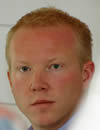 Robin Gosejohann (Germany) works as Project Manager in the Europe Programme of ERSTE Foundation which is active in the South Eastern European region. Based in Vienna, he oversees initiatives with focus on journalism, media, youth and education. Prior to that, he worked for the think-tank European Stability Initiative (ESI), where he was responsible for programme coordination and management of the ESI offices in Berlin and Istanbul. He has a strong background in NGO work and political campaigning in both Britain and Germany. Mr Gosejohann studied modern and economic history in Bielefeld and Leipzig as well as peace and conflict studies in Uppsala.
Robin Gosejohann (Germany) works as Project Manager in the Europe Programme of ERSTE Foundation which is active in the South Eastern European region. Based in Vienna, he oversees initiatives with focus on journalism, media, youth and education. Prior to that, he worked for the think-tank European Stability Initiative (ESI), where he was responsible for programme coordination and management of the ESI offices in Berlin and Istanbul. He has a strong background in NGO work and political campaigning in both Britain and Germany. Mr Gosejohann studied modern and economic history in Bielefeld and Leipzig as well as peace and conflict studies in Uppsala.
 Siegfried Knaus (Austria) studied business economics, with a focus on Revision and trusteeship, at the Vienna Economics University. Subsequent to his studies he was tasked by the municipality of Vienna to develop a concept for changing the city's accounting system into a computer-based one. For 14 years, he has worked as a systems analyst, software and sales manager for various international companies such as Nixdorf and Ericsson. Following a management-buy out he ran his own company for a decade, specialising in software, printing solutions, network solutions and system interfaces. Since 2004 he has advised ESI and since 2007 he works part-time on financial administration issues for ESI.
Siegfried Knaus (Austria) studied business economics, with a focus on Revision and trusteeship, at the Vienna Economics University. Subsequent to his studies he was tasked by the municipality of Vienna to develop a concept for changing the city's accounting system into a computer-based one. For 14 years, he has worked as a systems analyst, software and sales manager for various international companies such as Nixdorf and Ericsson. Following a management-buy out he ran his own company for a decade, specialising in software, printing solutions, network solutions and system interfaces. Since 2004 he has advised ESI and since 2007 he works part-time on financial administration issues for ESI.
 Stefan Apfl (Austria) is since 2007 journalist for the Austrian weekly "Falter". He is competent for European Affairs and Islam. From 2006 to 2007 he worked as an analyst for the European Stability Initiative (ESI) in Berlin and Istanbul, where he did research on the Turkey Debate in Europe. Mr Apfl published articles in "Die Zeit", "Handelsblad" and "Turkish Policy Quarterly" amongst others. In 2008 he was the national award winner of the Diversity Prize for Journalism by the European Commission. He graduated in Journalism and Media Management and studied at the University for Applied Sciences in Vienna.
Stefan Apfl (Austria) is since 2007 journalist for the Austrian weekly "Falter". He is competent for European Affairs and Islam. From 2006 to 2007 he worked as an analyst for the European Stability Initiative (ESI) in Berlin and Istanbul, where he did research on the Turkey Debate in Europe. Mr Apfl published articles in "Die Zeit", "Handelsblad" and "Turkish Policy Quarterly" amongst others. In 2008 he was the national award winner of the Diversity Prize for Journalism by the European Commission. He graduated in Journalism and Media Management and studied at the University for Applied Sciences in Vienna.
Yerevan
 Tigran Mkrtchyan (Armenia) is ESI's Analyst in Armenia. Before working for ESI he worked as the Foreign Affairs Adviser to the Speaker of the National Assembly of Armenia (2005-06), lectured courses in International Relations and History at Yerevan State University and was the Executive Director of the Armenian International Policy Research Group-AIPRG (2007-08). He holds an MPhil degree in International Relations from the University of Cambridge (Chevening Scholar), UK, MA degree in Classics and BA degree in History from the History Faculty of Yerevan State University. He was a 2006 John Smith Fellow in the United Kingdom from Armenia and a World Vision Youth Ambassador from Armenia in 1998. He has published several articles in Armenia and abroad on international security and theory. His research interests include international history, international security (NATO and alliance politics), and political theory (history of political thought and theory of international relations).
Tigran Mkrtchyan (Armenia) is ESI's Analyst in Armenia. Before working for ESI he worked as the Foreign Affairs Adviser to the Speaker of the National Assembly of Armenia (2005-06), lectured courses in International Relations and History at Yerevan State University and was the Executive Director of the Armenian International Policy Research Group-AIPRG (2007-08). He holds an MPhil degree in International Relations from the University of Cambridge (Chevening Scholar), UK, MA degree in Classics and BA degree in History from the History Faculty of Yerevan State University. He was a 2006 John Smith Fellow in the United Kingdom from Armenia and a World Vision Youth Ambassador from Armenia in 1998. He has published several articles in Armenia and abroad on international security and theory. His research interests include international history, international security (NATO and alliance politics), and political theory (history of political thought and theory of international relations).
